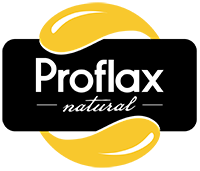Keeping your dogs immune system strong and healthy is vital. It is responsible for protecting their body against illness and infection. When it is not functioning correctly, your dog can suffer from various ailments which can lead to long term health problems.
The role of the immune system is to detect viruses, bacteria, fungi, parasites and abnormal cells, (referred to in this blog as ‘threats), to the body and to eliminate them. It’s an incredibly complex system, based in the bone marrow, which interacts intricately with both the blood circulatory and the lymphatic systems. Each part of the system plays a pivotal role in growing, developing or activating the cells whose actions defend the body from threats.
The immune system reacts in different ways to threats: it can react appropriately, where it identifies and eliminates the threat, inappropriately or inadequately, where the immune system treats its own cells as invaders, causing what are called auto-immune or immune deficiency disorders or hyperactively, which is where your dog will suffer with allergies/sensitivities.
Factors that are unique to your dog will influence whether they will or won’t react to a threat and if they do, in which way they will react. The main influencer is your dogs inherited predisposition to certain diseases. The quality of your dogs diet is of critical importance as nutritional deficiencies or imbalances can affect their ability to defend themselves from the threat. Their general health and any underlying illness will also affect their resistance to threats.
In the case of auto-immune disease, the immune system needs assistance in modulating its response. Plant sterols are natural substances found in all fruits, vegetables, nuts and seeds. These plant nutrients have many unique health benefits including promoting balance of the immune system; enhancing an under active immune system and modulating an overactive one. They provide support for the immune system to regulate itself and restore balance.
Antioxidants are extremely helpful in treating auto-immune disorders as they assist the immune system in eliminating free radicals and reducing oxidative stress without directly stimulating an immune response. Alpha-lipoic acid found in liver, kidney, spinach and broccoli are examples of such antioxidants.
Boosting or stimulating the immune system is at times necessary for animals with acute or chronic illnesses or for those exposed to contagious disease. Viral diseases, infections and cancer are some of the disorders in which stimulating the immune system with herbs and supplements is called for. Boosting immunity, however, is not always appropriate or required. In some cases, the immune system needs calming and balancing – as is the case for autoimmune disorders and frequently for chronic allergies.
Conditions associated with immune dysfunction
- Digestive issues - your dogs gut is responsible for 60-70% of their immune system
- Sensitivities and allergies
- Immune disorders
- Cancers
- Organ disease
- Joint problems
- Infections (recurrent)
- Inflammatory conditions
What to avoid (or try to!)
- Environmental toxins; pesticides, chemical cleaning solutions
- Vaccines
- Chemical fleas/ticks/wormer treatments
- Poor quality food that contain toxic ingredients; additives, colourings, preservatives
- Medication
- Tap water - contains fluoride, chlorine etc which are heavy metals
Care of the immune system
- Feed foods rich in antioxidants; cruciferous veggies (kale, spinach, broccoli, fruits, nuts, seeds)
- Feed a fresh species appropriate diet - avoid preservatives/colourings/artificial additives
- Provide a healthy lifestyle - exercise/mental stimulation
- Reduce stress
- Keep a healthy weight
- Massage/hydrotherapy/holistic treatments such as acupuncture (in cases of auto-immune disorders)
- Detox the liver periodically
- Boost gut health with pre & probiotics
- Feed natural supplements including a good toxic free source of essential fatty acids

